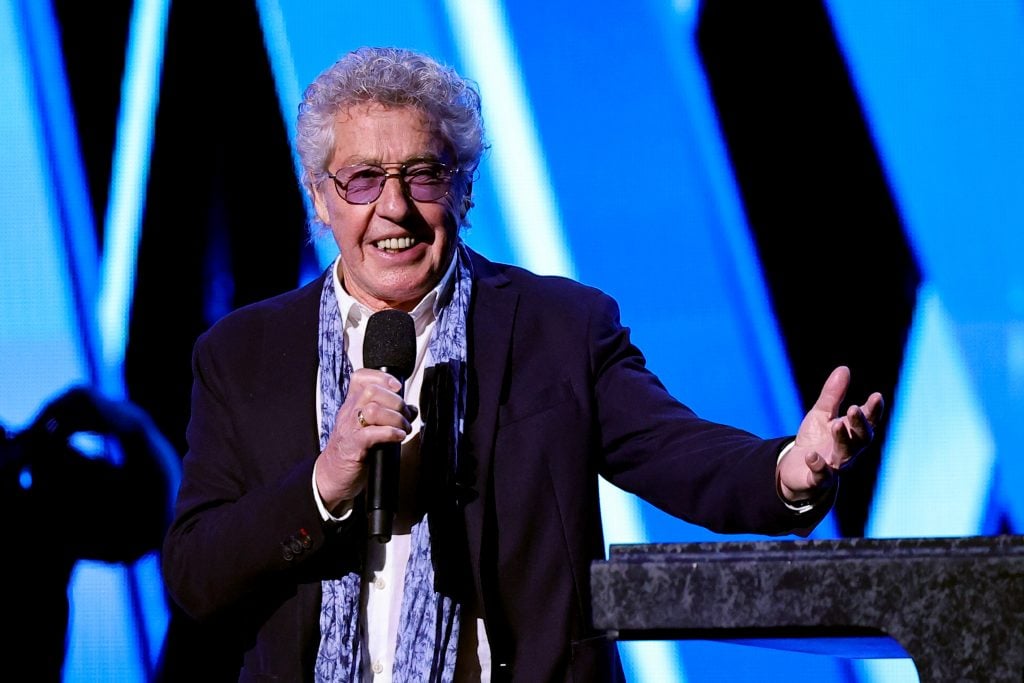Advocating for Younger Adult Cancer Patients
- “The Who” lead singer Sir Roger Daltrey, 81, continues to use his international music platform to draw attention to young people battling cancer. He created “Teen Cancer America” in 2012 to support young adults and teens diagnosed with cancer through special programs to help make their journeys easier.
- Daltrey’s organization marked a ten-year milestone, having partnered with Dana-Farber Cancer Institute in Boston, Massachusetts, this year.
- Research published in the medical journal JAMA is seeing a noticeable increase in people under 50 diagnosed with gastrointestinal cancers, which include stomach, colon, pancreatic, and esophageal cancer.
- According to the National Cancer Institute, people younger than 50 are seeing an uptick in more than just gastrointestinal cancers; “breast, uterine, and kidney” cancers are also impacting young people at higher rates.
- Researchers suggest most early-onset gastrointestinal cancers are associated with risk factors related to lifestyle choices, including obesity, poor-quality diet (eg, sugar-sweetened beverages, ultra-processed foods), sedentary lifestyle, cigarette smoking, and alcohol consumption.

This year marks 13 years since Teen Cancer America, the nonprofit Daltrey co-founded with bandmate Pete Townshend, began supporting adolescent cancer patients. And it’s been a decade since the organization partnered with Dana-Farber Cancer Institute in Boston, helping bridge the gap in care for teens and young adults navigating a diagnosis.
Read More
Daltrey’s advocacy became even more personal when he faced a health scare of his own, after noticing changes in his voice.

“My voice started getting raspy, and I was concerned it might be cancer,” he shared with WBTS News.
“It turned out to be a precancer, and the doctor took care of my chords, and my voice now is better than it’s ever been.”
His experience only deepened his commitment to the cause. Daltrey believes that young patients offer insights and resilience that the medical community must pay closer attention to.
“They can learn just as much—if not more—from young cancer patients as they do from much older patients who tend to receive more diagnoses,” he said.
From stadium stages to hospital corridors, Roger Daltrey continues to use his voice to elevate young survivors.
Navigating a Cancer Diagnosis as a Young Adult
- A Cancer Diagnosis Right After Giving Birth — A Young Mom’s Struggle to Bond With Her Child
- A Remarkable Young Man Who Made a Difference — We Will Not Forget Tyler Trent
- ASCO News: Young Women With Advanced Breast Cancer Benefit From a New Combination of Drugs
- Cancer Rates Grew By 30% in Teens & Young Adults Over Last 40 Years; Researchers Call for More Focus On This Demographic
- Cancer as a Young Adult Is Different & In Some Ways More Complex: Survivor Mag Bujalski Explains
An Increasing Number of Young Adults Facing Cancer
According to recent data published in JAMA, the number of people diagnosed with stomach cancer (also called gastric cancer) before age 50 is on the rise. Among early-onset gastrointestinal (GI) cancers reported in 2022, gastric cancer accounted for 23.8% — 80,885 cases — making it the second most common behind colorectal cancer. Esophageal cancer (13.2%; 45,056 cases) and pancreatic cancer (8.6%; 29,402 cases) rounded out the top four.
RELATED: Understanding the Environment’s Role in Cancer Risk — Diet, Exposure & Genetics
The National Cancer Institute reports that since the 1990s, colorectal cancer cases have been rising among adults younger than 50. Research published in CA: A Cancer Journal for Clinicians found that the proportion of cases in people younger than 55 “increased from 11% in 1995 to 20% in 2019.”
Data published in the American Cancer Society’s medical journal “Cancer” draws attention to obesity among younger populations as a possible reason for a higher colorectal cancer incidence rate.
“Colorectal cancer was the fourth-leading cause of cancer death in both men and women younger than 50 years in the late 1990s but is now first in men and second in women,” the study says.
WATCH: Diet and Health: Foods that Might Prevent Colon Cancer
A 2018 study published in “JAMA Oncology” addressed obesity as a risk factor for early-onset colorectal cancer among women. Within the study that included more than 85,000 women, obese participants who had a body mass index (BMI) greater than 30 nearly “doubled the risk of early-onset colorectal cancer compared to women with a BMI of 18.5 to 22.9.”
Data from the Centers for Disease Control and Prevention (CDC) says, “Adults aged 18–24 had the lowest prevalence of obesity (20.5%) compared to adults aged 45–54, who had the highest prevalence (39.9%).”
RELATED: Young and Worried About Cancer? The Five Things You Shouldn’t Do (And What Doctors Recommend)
According to the National Cancer Institute, people younger than 50 are seeing an uptick in more than just gastrointestinal cancers; “breast, uterine, and kidney” cancers are also impacting young people at higher rates.
Changing the Game for Young Adults With Cancer: Matthew Zachary’s Story
When Matthew Zachary was facing brain cancer as a 21-year-old college student, he noticed a real lack of resources for people in his situation. That’s why he created Stupid Cancer. And now, 22 years after his diagnosis, he feels like the resources he wished he had are finally becoming available.
“I feel like I was hand-sculpted to create an organization,” Matthew says. “And be a voice for the invisible Gen-Xers – the most underserved age group in cancer. We get it more, we die more, we are diagnosed late, we are misunderstood … it’s different, and if you want to save our lives, it requires a completely different framework.”
Similar to Daltrey, Zachary is also using his experience and platform to draw attention to the unique needs of younger cancer patients.
Learn more about SurvivorNet's rigorous medical review process.

